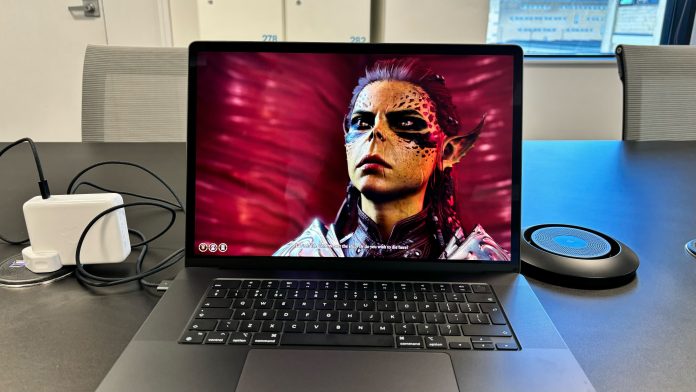Early adopter customers have already begun receiving their 14-inch M3 MacBook Pro laptops, but there’s one caveat: some of them won’t let you install Apple’s latest operating system, macOS Sonoma.
It seems there were a good portion of buyers who received M3-powered MacBook Pros equipped with an outdated OS, namely macOS Ventura. When attempting to update to the most recent version through the System Settings app, they found that macOS Ventura 13.5 was listed as the latest version. And apparently, it’s not just MacBook Pros either, as the recent 24-inch M3 iMac has been encountering the same issue as reported by 9to5Mac.
Even trying to update through the Mac App Store fails, with one of the error messages stating: “The requested version of macOS is not available. Please check if your Mac is compatible with this software.”
This strange problem has been encountered by Daniel Rotar who hosts the YouTube channel ZONEofTECH, as well as other users from around the world.
Though it can be remedied by downloading the Install Assistant for the M3 version of macOS Sonoma 14.1, it’s still an odd issue to have in the first place. However, according to researcher and Twitter/X user Aaron, the reason might have to do with what version of macOS Ventura those malfunctioning Macs have.
Apple has just mysteriously released 2 new versions of Rosetta for macOS 13.5 (which came out in July)The original Rosetta 13.5 from July has a build number of 22G74 pic.twitter.com/GQWYDgm5TYNovember 7, 2023
As the tweet points out (and has since been verified by the MacRumors forums), those Macs shipped with an unreleased build of Rosetta 13.5 with a build number of 22G74. This is significant because most likely it means those laptops have been sitting in a warehouse since July 2023.
Apple needs to do better
Even if those MacBook Pros and iMacs had been sitting in a warehouse for months before shipping out, the idea of them being released with such a major issue is still disappointing. Apple should have properly inspected these devices, especially if they’ve been in storage for so long.
Presumably, Apple will release a patch soon to allow affected users to update their Macs through the System settings app or the official Apple website. Considering how much these products cost in the first place, I couldn’t imagine getting a product that can’t even update to the latest OS.
Let’s hope this will be a lesson learned for Apple to be more thorough in the future, as multiple cases like this can seriously affect its reputation.


















